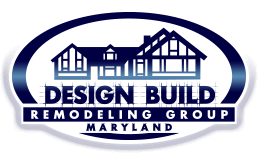Designing an in-law suite involves more than just creating an additional living space within your home. It’s about providing comfort, accessibility, and independence for your loved ones while enhancing your property’s functionality and value. In this context, attention to detail and foresight into the suite’s design and features are paramount, especially when considering aging in place. Design Build Remodeling Group of Maryland, one of the top home remodeling contractors in the local area, shares a few dos and don’ts to keep in mind.

Understanding Your Local Zoning Laws
Do: Check Local Building Codes
Before embarking on your in-law suite project, familiarize yourself with local zoning laws. Restrictions may apply to kitchen functionalities or the number of allowable units on a property, affecting your design plans. Consulting with an experienced builder ensures compliance and saves you from potential legal issues.
Don’t: Assume Any Design Goes
Assuming you can freely add a fully equipped kitchen or separate utilities without verifying can lead to costly mistakes. Always verify what’s permissible in your area to avoid the hassle of undoing work that violates local codes.
Planning for Accessibility
Do: Design With Aging in Place in Mind
Incorporate features such as wide doorways, no-step entries, and accessible bathroom fixtures to accommodate mobility aids like walkers and wheelchairs. Thinking ahead about the needs of your loved ones ensures the in-law suite remains a comfortable, lifelong living space.
Don’t: Overlook Future Needs
Avoid designs that cater only to the current state of occupants. Neglecting to include accessible features from the start might require costly renovations later on to meet the changing needs of aging relatives.
Ensuring Privacy and Independence
Do: Provide Private Entrances and Living Facilities
To foster independence and privacy, include separate entrances and self-contained living amenities. A kitchenette, even if limited by code, allows for autonomy in meal preparation, while ensuite bathrooms and laundry facilities ensure privacy.
Don’t: Sacrifice Autonomy for Convenience
While it’s essential to keep loved ones close, especially for ease of care, ensure that the layout and features of the in-law suite do not make occupants feel they’re living in a shared space. Independence is a key component of dignity in later life.
Safety and Comfort Considerations
Do: Prioritize Safety Features
Incorporate senior-friendly furniture, non-slip flooring, grab bars in bathrooms, and emergency alert systems. These features are crucial for preventing accidents and ensuring help is readily available when needed.
Don’t: Skimp on Safety for Aesthetics
While designing a visually pleasing space is important, it should never come at the expense of safety. Avoid sharp-edged furniture or high thresholds that could be tripping hazards for seniors.
Financial and Practical Implications
Do: Consider the Impact on Property Value
Well-designed in-law suites can significantly enhance your property’s appeal and value, especially in areas where multigenerational living might be in demand. Consider this project not just as an expense but as an investment in your home.
Don’t: Start Without a Budget Plan
Getting carried away with elaborate designs without a clear budget can lead to unnecessary financial strain. Work with trusted new addition contractors who can help balance your desires with what is practical and affordable, ensuring that the project is completed without financial regret.
Designing an in-law suite requires thoughtful consideration of the current and future needs of its occupants, compliance with local building standards, and careful planning to ensure privacy, accessibility, and safety. By adhering to these dos and don’ts, you can create a space that serves as a comfortable, independent living area for your loved ones, while also being a valuable addition to your home.
In addition to providing top-notch bathroom and kitchen remodeling services, Design Build Remodeling Group of Maryland is also adept in designing in-law suites. Call us at (443) 300-2268 or complete our online form to schedule a consultation. We look forward to serving clients in Washington, D.C., and surrounding areas.





